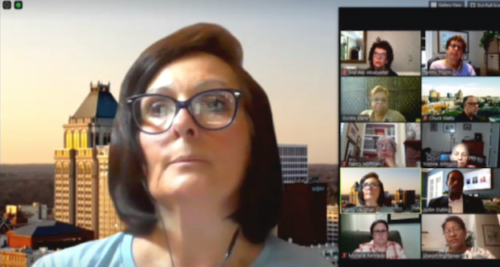The Greensboro City Council abolished the Planning Board at the Tuesday, July 21 meeting.
The perhaps not so obvious question is, what took so long?
Mayor Nancy Vaughan in explaining the reason for the action said, “ This will make us a little more business friendly. We were an outlier in having a planning board.“
Vaughan said she had consulted with the Neighborhood Congress, Triad Real Estate and Building Industry Coalition and others involved in development.
Councilmember Sharon Hightower said, “This basically takes away the Planning Board, that’s what I read about in the paper.”
After the now defunct Connections 2025 Comprehensive Plan was first adopted by the City Council in 2003, councilmembers much to their surprise discovered that by adopting Connections 2025 they had given the Planning Board the authority to veto, rezoning requests that required an amendment to Connections 2025 and the infamous Generalized Future Land Use Map (GFLUM).
At that time, councilmembers became aware of what the Planning Board accomplished and there was an effort to have the Planning Board abolished.
But the item never came to a vote.
So a board that many city councilmembers believed was obsolete in 2003 finally got abolished in 2020.
Unlike the Zoning Commission, which can and does rezone property, the Planning Board doesn’t have the power to do much except advise.
As Vaughan noted, doing a way with the Planning Board streamlines the land development process and makes Greensboro more business friendly.
Over the years, amending Connections 2025 became so routine that it was rarely considered worth discussing by the City Council, which concentrated on the rezoning request, not what the Connections 2025 committee thought the city should look like 22 years down the road.
The new comp plan, GSO 2040, doesn’t require an amendment to rezone property, which is more business friendly as is doing away with the Planning Board which did little except add another step to the process.


thank goodness, it is about time
All this council members do is spend the taxpayers money and we the people are sick of it .Just look at down town greensboro what a mess after all that money spent its looks like a place from another world and it’s all falls on you and Roy Cooper and the TAXPAYERS will not pay to fix it you and roy can pay for it and march on .
The wheels of justice move ever so slow.It took 17 years to do something that should have been done in 2/3 years.This was a blight on Greensboro since its inception.